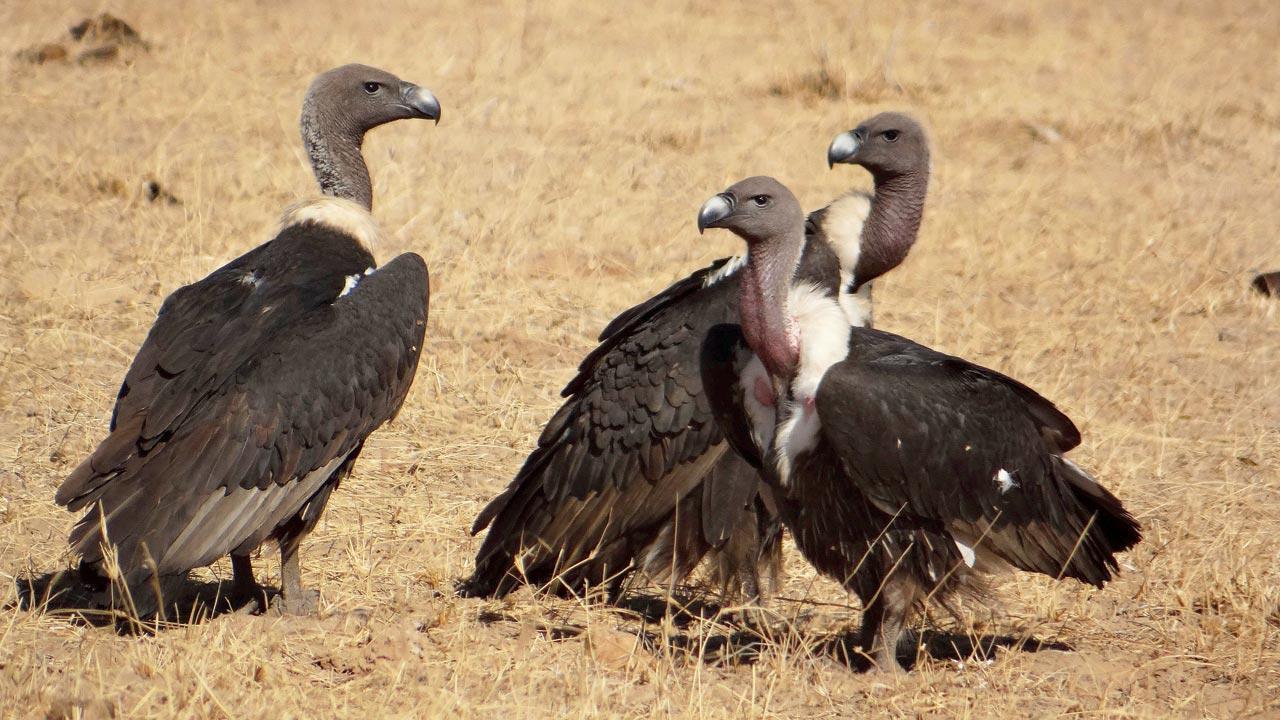A guidebook by the Bombay Natural History Society offers fascinating insight into the flora and fauna that can be found in the Thar desert

White-backed vulture. Pic courtesy/Sujit Narwade
Being home to rare species of flora and fauna, the Thar Desert in Rajasthan has not been entirely explored with the curiosity that it deserves. To bridge this gap, Bombay Natural History Society-India (BNHS), along with Environmental Awareness Capacity Building, and Livelihood Programme (EIACP) and the Ministry of Environment, Forests and Climate Change, launched a Hindi guide book on April 27 that takes one through the wildlife of the Thar Desert. Titled, Thar Marusthal Ke Vanyajeev Ek Jhalak (Wildlife in Thar Desert: A Glimpse), the book explains the several rare and common species found across the habitat, their common names, their population, migration period and track, and the issues their population face today among other information.
ADVERTISEMENT
 Leafless milk hedge. Pic courtesy/A Mohan
Leafless milk hedge. Pic courtesy/A Mohan
Dr Sujit Narwade, assistant director, BNHS was the project co-ordinator on this book. About the book being released only in one language, he notes, “We intentionally released it in Hindi to concentrate on the local community and help students and researchers to better understand the nature around them, rather than making this an informative read.” Narwade informs us that the book cannot be labelled as a field guide as it does not include every species, “We have focussed on some rare and common species that needed attention from not just environmentalists, but also the locals who encounter them regularly.”
 Brilliant ground agama. Pic courtesy/Sujit Narwade; Chinkara. Pic courtesy/Radheshyam Pemani and Desert fox. Pic courtesy/Musa Khan
Brilliant ground agama. Pic courtesy/Sujit Narwade; Chinkara. Pic courtesy/Radheshyam Pemani and Desert fox. Pic courtesy/Musa Khan
BNHS has been working in Thar Desert for the past four years, discovering that with only few protected areas by the state government, the data outside of these small and limited vicinities often go unnoticed. The low human population too adds to the issues. “The idea behind curating this book was to raise awareness and get feedback from the local people as well — we would acquire more information about certain flora and fauna from them, and in return educate them about the measures to be taken to save the declining species. Also, with scarcity of living communities, often a species that is common for one village is a rare sight for another,” Narwade explains.
The environmentalist tells us that other grasslands around the world have also been facing problems in preserving rare flora and fauna. “We hope that this book helps take the cause ahead. Which is why we have kept the book free where one can access its PDF anytime from the BNHS site,” he
signs off.
Log on to bnhsvis.nic.in
 Subscribe today by clicking the link and stay updated with the latest news!" Click here!
Subscribe today by clicking the link and stay updated with the latest news!" Click here!







